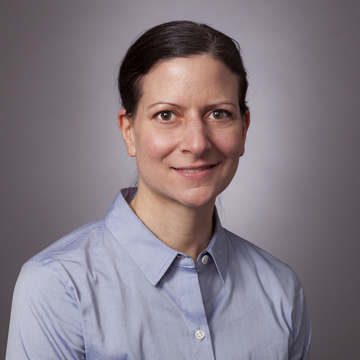Geeks Drive Girls Out of Computer Science
The stereotype of computer scientists as geeks who memorize Star Trek lines and never leave the lab may be driving women away from the field, a new study suggests.
And women can be turned off by just the physical environment, say, of a computer-science classroom or office that's strewn with objects considered "masculine geeky," such as video games and science-fiction stuff.
"When people think of computer science, the image that immediately pops into many of their minds is of the computer geek surrounded by such things as computer games, science-fiction memorabilia and junk food," said lead researcher Sapna Cheryan, an assistant professor of psychology at the University of Washington. "That stereotype doesn't appeal to many women who don't like the portrait of masculinity that it evokes."
The upshot: Women don't feel they would fit in and so steer clear of computer-science majors and jobs, the researchers say. Such avoidance could help to explain why just 22 percent of computer-science graduates are women, a percentage that has been steadily decreasing, according to 2008 data from the National Science Foundation.
Not only are women missing out on some of the "best career opportunities, but computer science is missing out on female perspectives," Cheryan and her colleagues wrote in a recent issue of the Journal of Personality and Social Psychology.
Geeky objects
The results come from four studies with more than 250 students who weren't studying computer science.
Sign up for the Live Science daily newsletter now
Get the world’s most fascinating discoveries delivered straight to your inbox.
In the first experiment, about 40 male and female students entered a small classroom that either contained objects stereotypically associated with computer science, such as Star Trek posters, video game boxes and Coke cans, or non-stereotypical items such as nature posters, art, a dictionary and coffee mugs. (The students were told to ignore these objects because the room was being shared with another class.)
Then, the students filled out questionnaires about their attitudes toward computer science.
In the geeky environment, women were significantly less interested than men in computer science, while there was no gender difference for the non-stereotypical classroom. Female students in the stereotypical environment said they felt less similar to computer-science majors than did those in the classroom that wasn't geeked out.
In three other experiments, two of which involved about 90 students each, participants were told to imagine stereotypical and non-stereotypical objects in various environments. Here are some of the results:
- When women were given the choice of joining one of two all-female teams at a company, with the only difference between the teams being the objects found in respective workrooms, 82 percent of the women picked the team with the non-stereotypical workroom.
- Male and female participants were given the choice between similar jobs at one of two companies with the only difference being the description of objects (either nerdy or generic) for each company. Both genders preferred the job in the non-stereotypical work environment, but women's preferences for the non-geeky environment were significantly stronger than men's.
- In another similar job-position experiment, women were more likely to accept an offer with a neutral Web-design company while men had the opposite preference, choosing the stereotypically nerdy company. The more women perceived the stereotypical environment as masculine, the less interested they were in that company.
Changing computer science
There was a subset of women in the study who didn't view the stereotypical objects as masculine and geeky and aren't turned off by the associated office or classroom.
"That tells me that it's a cultural phenomenon," Cheryan told LiveScience. "These objects are not inherently masculine or geeky; they've been constructed that way. That means to me we can reconstruct the objects or more importantly the whole field."
Cheryan added one way to change the lopsided field would be, "broadening the image of computer science to make it so that other people feel a connection to the field."
- Top 5 Myths About Girls, Math and Science
- 10 Things You Didn't Know About You
- The Biggest Popular Myths

Jeanna served as editor-in-chief of Live Science. Previously, she was an assistant editor at Scholastic's Science World magazine. Jeanna has an English degree from Salisbury University, a master's degree in biogeochemistry and environmental sciences from the University of Maryland, and a graduate science journalism degree from New York University. She has worked as a biologist in Florida, where she monitored wetlands and did field surveys for endangered species. She also received an ocean sciences journalism fellowship from Woods Hole Oceanographic Institution.
